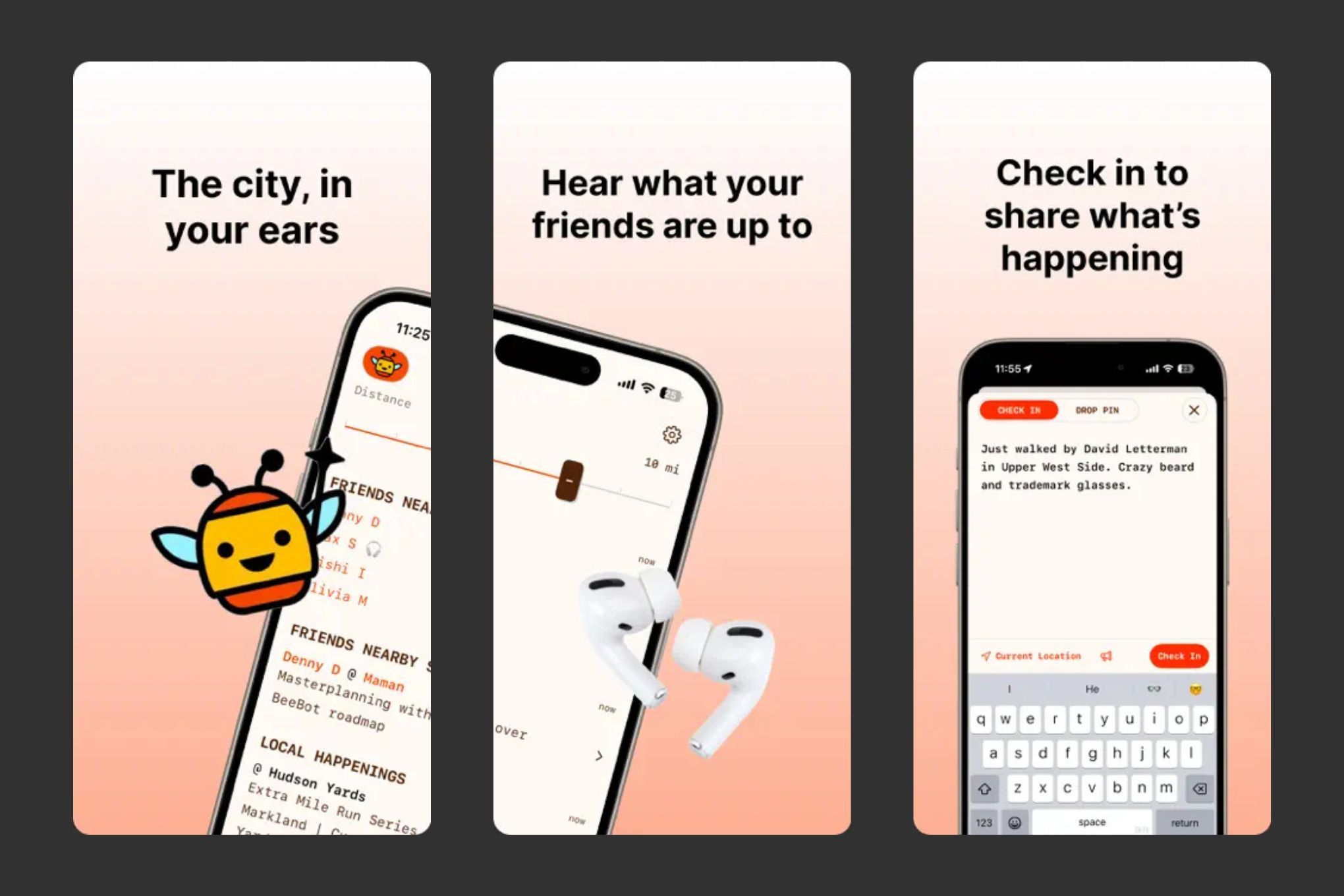Foursquare co-founder Dennis Crowley just dropped BeeBot, an AI-powered social app that whispers neighborhood intel directly into your headphones. The iOS-only app acts like a "personalized radio DJ," delivering bite-sized location updates about friends, local events, and area news as you walk around. It's positioning itself as "Waze meets Gossip Girl" for the always-connected generation.
Dennis Crowley is betting your headphones are the next frontier for social networking. The Foursquare co-founder just launched BeeBot, an AI-powered app that turns your daily walks into a personalized audio news feed about everything happening around you. After teasing the concept last year, the app is now live on the App Store for US iOS users. The pitch is simple but ambitious: BeeBot acts like a "personalized radio DJ" that whispers hyper-local intel directly into your ears as you move through the world. "Audio updates are meant to be short and sweet, tailored to your interests and your social graph, and designed to both inspire and inform you," Crowley explained in his Medium announcement. "The vibe we're going for is more 'Waze meets Gossip Girl,' and less 'Wikipedia in your ears.'" The app represents a fascinating evolution from Crowley's location-obsessed Foursquare days. Where that platform gamified check-ins and mayorships, BeeBot makes location awareness completely passive. It automatically activates when you put headphones in and delivers curated updates 2-3 times per day - never the "10x/day" spam that would make users rip their AirPods out in frustration. Despite being called "BeeBot for AirPods," the app works with any audio device, from wired headphones to car stereos to Meta's Ray-Ban smart glasses. It intelligently manages your audio experience - lowering music volume to speak, pausing and resuming podcasts, but respectfully staying silent during calls. The technical execution feels thoughtfully designed for real-world use. BeeBot pulls updates from multiple data streams, including live locations from other users and keyword-based recommendations for local spots and events. The app learns your interests to surface relevant neighborhood intel, creating what could become highly addictive ambient social awareness. But there's a strategic tension here. Crowley admits BeeBot is "still very much in beta" and works best in walkable US cities rather than suburbs or car-dependent areas. The gossip-first, news-second approach feels deliberately niche, targeting urban millennials who want to feel plugged into their neighborhood's social fabric. The timing couldn't be more interesting. As doubles down on spatial computing and audio experiences, BeeBot represents the kind of ambient AI app that could define the next generation of mobile interaction. It's less about staring at screens and more about seamlessly blending digital intel with physical movement. For Crowley, who helped pioneer location-based social networking over a decade ago, BeeBot feels like a natural evolution. Where Foursquare required active participation - checking in, earning badges, competing for mayorships - BeeBot makes location awareness completely frictionless. You just walk, and the app whispers the social temperature of your surroundings. The broader implications are fascinating. If BeeBot gains traction, it could spawn an entire category of ambient social apps that use AI to filter and deliver hyper-local information through audio interfaces. The current beta limitations - iOS-only, US-exclusive, city-focused - feel like intentional constraints while Crowley refines the experience.












